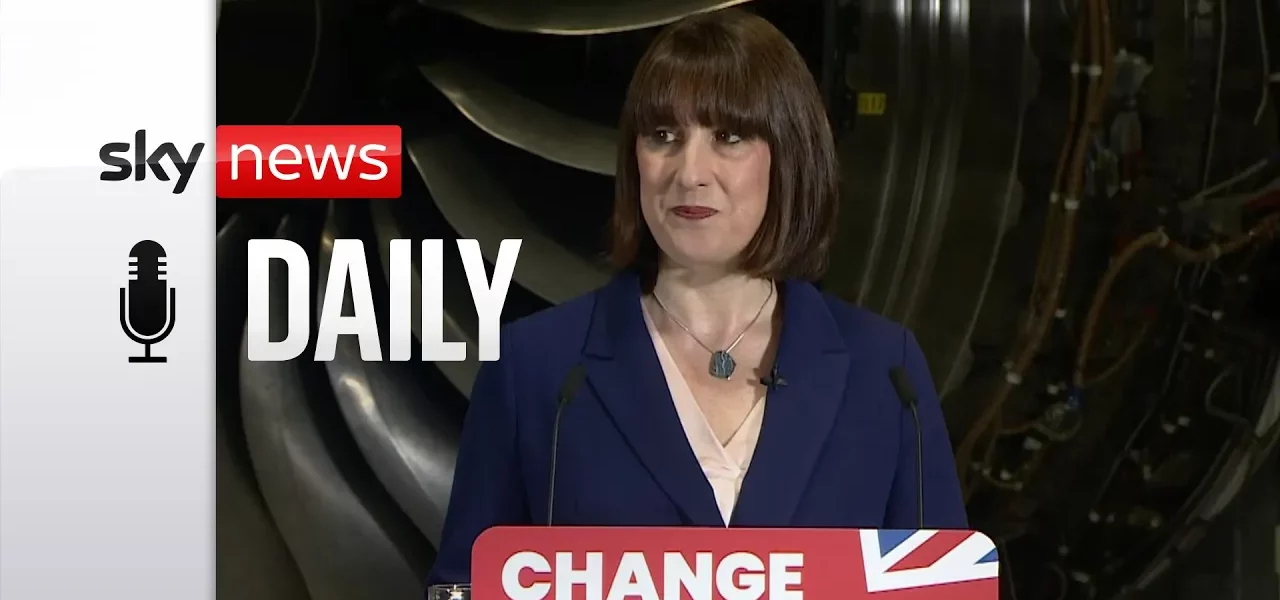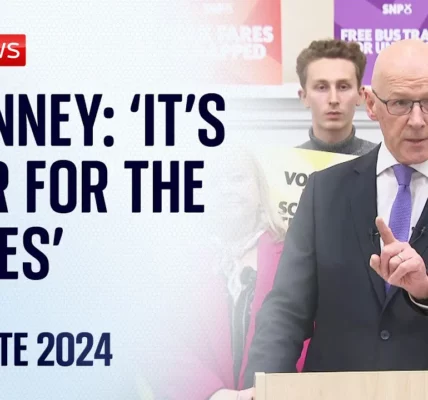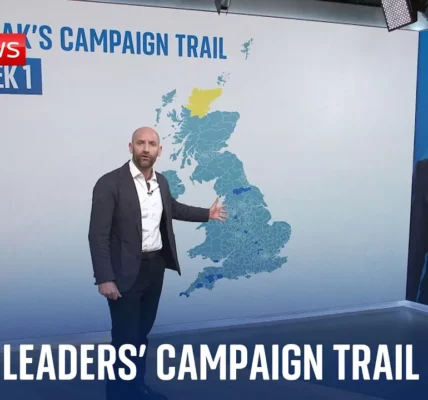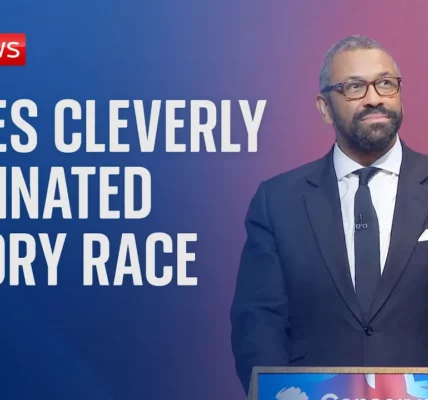The Potential First Female Chancellor: Rachel Reeves’ Keynote Speech Analysis

In a pivotal moment for the Labour Party, Rachel Reeves has emerged as a significant figure in the political landscape of the UK. Her recent keynote speech at the Rolls-Royce Factory in Derby has sparked discussions about her potential role as the first female Chancellor of the UK. This article delves into the key themes of her speech, her political influence, and the implications for the future of British governance.
Introduction
Rachel Reeves, the Shadow Chancellor of the Exchequer, has recently captured national attention with her first keynote speech during the Labour Party’s campaign leading up to the upcoming elections. Delivered at the iconic Rolls-Royce factory, her address was not just an announcement but a strategic positioning of Labour as the party of business and growth. This article explores the nuances of her speech, her relationship with Labour leader Keir Starmer, and the implications of her potential leadership as Chancellor.
Rachel Reeves: An Ideological Force
Rachel Reeves has been identified as a crucial ideological figure within the Labour Party, particularly under Keir Starmer’s leadership. This section examines the dynamics between Reeves and Starmer, highlighting the following points:
- Close Collaboration: The relationship between Reeves and Starmer has been compared to historic political duos like Tony Blair and Gordon Brown, indicating a close working alliance.
- Influence on Policy: Members of the Shadow Cabinet often refer to Reeves when discussing economic decisions, showcasing her significant influence over fiscal policies.
- Pro-Business Positioning: Reeves has aimed to redefine Labour’s image, emphasizing a pro-business stance while balancing the needs of workers.
Key Themes from the Keynote Speech
During her keynote speech, Rachel Reeves addressed several critical themes that are central to Labour’s campaign strategy. These themes include:
1. Labour as a Party of Business
Reeves boldly positioned the Labour Party as the natural partner for business, a significant shift from previous perceptions. Key points included:
- The backing of 120 business leaders, which was highlighted as a major endorsement of Labour’s growth plans.
- A declaration of intent to restore business confidence in the Labour Party, contrasting sharply with the party’s previous image under Jeremy Corbyn.
- A commitment to fostering enterprise and innovation, crucial for economic recovery.
2. Balancing Fiscal Responsibility with Public Needs
In a time of economic uncertainty, Reeves emphasized the need for responsible spending and budgeting. This was illustrated by:
- Her assurance that all proposed initiatives, such as increasing NHS appointments and hiring teachers, are fully costed.
- A refusal to commit to additional tax rises beyond what has already been outlined, underlining a strategy of fiscal prudence.
- A focus on ensuring that any tax policy would prioritize lower burdens for working people and pensioners.
The Controversy Surrounding Business Endorsements
Despite the positive reception of her speech, the list of business leaders endorsing Labour has faced scrutiny. This section explores:
1. Analysis of the Endorsement List
The implications of the list have been mixed, as many of the signatories are not current CEOs of top FTSE 100 companies. Key observations include:
- A significant number of endorsers are former executives, raising questions about their current influence.
- Concerns about the legitimacy of some endorsements, with suggestions that some businesses may not be fully operational.
- The necessity for Labour to maintain credibility in its business relations amidst these controversies.
Challenges Ahead for Rachel Reeves
As Rachel Reeves positions herself as a potential Chancellor, she faces numerous challenges that will test her political acumen. These challenges include:
1. Historical Perceptions of Labour
The Labour Party has historically struggled with its reputation concerning economic management. Reeves must:
- Prove that Labour can be trusted to handle fiscal affairs effectively.
- Address public skepticism regarding Labour’s economic policies and its ability to foster a business-friendly environment.
2. Navigating Economic Reality
The current economic climate presents significant hurdles. Key considerations for Reeves include:
- Dealing with high levels of public debt and the implications for future spending.
- Managing public services that are under financial strain, necessitating difficult decisions on resource allocation.
- Establishing a clear plan for tax policy that reassures voters while addressing economic needs.
Conclusion
Rachel Reeves’ keynote speech marks a critical moment in the Labour Party’s campaign, positioning her as a formidable candidate for the role of Chancellor. Her ability to navigate the complexities of modern economic challenges while redefining Labour’s relationship with business will be crucial as the party seeks to regain public trust. As we approach the elections, her strategies and policies will be under scrutiny, and her success in rallying support will ultimately determine her legacy as a potential first female Chancellor of the UK. For further insights and updates on UK politics, explore our related articles on economic policy and Labour’s campaign strategies.
“`




